Holden Madagame: The trans opera singer who went from mezzo soprano to tenor
The performer, who was accepted by the Glyndebourne Academy to work on his vocal technique after taking testosterone, talks about finally being accepted by the opera world
Your support helps us to tell the story
From reproductive rights to climate change to Big Tech, The Independent is on the ground when the story is developing. Whether it's investigating the financials of Elon Musk's pro-Trump PAC or producing our latest documentary, 'The A Word', which shines a light on the American women fighting for reproductive rights, we know how important it is to parse out the facts from the messaging.
At such a critical moment in US history, we need reporters on the ground. Your donation allows us to keep sending journalists to speak to both sides of the story.
The Independent is trusted by Americans across the entire political spectrum. And unlike many other quality news outlets, we choose not to lock Americans out of our reporting and analysis with paywalls. We believe quality journalism should be available to everyone, paid for by those who can afford it.
Your support makes all the difference.About half a year ago, my girlfriend told me about the Glyndebourne Academy, and it was like my social justice dreams had come true: a training program for aspiring opera singers who had non-traditional career paths, with an emphasis on diversity. The world-famous opera house has long been known for its ability to nurture young singers (many greats have started out there), but I didn't know they had devised a course that perfectly met my needs.
If you look at me, you might not know why this was such a godsend, but if you sit me down with a coffee, you'll quickly learn why. I'm 27 (much older than I look), Native American, queer and transgender. This means that I was assigned female at birth, but no longer identify as female. I use male pronouns, my voice sounds suitably masculine, and I have some scruff on my chin most days. I am also a tenor who used to be a mezzo soprano.
A very enthusiastic choir teacher gave me the tools to realise that I loved singing at high school, and I was good at it. I did competitions and participated in the top-level state choirs for several years, and also got into the final rounds for solo competitors in my last year.
This was all very exciting, but it wasn't until my singing teacher gave me an aria from an opera that I knew what I wanted to do in life. It was Cherubino's aria, “Voi che sapete” from Le nozze di Figaro, and I was immediately entranced by this world. I went on to study voice and performance at the University of Michigan, and would have been ready to take my first steps in my career when I graduated – were it not for the changes taking place in another aspect of my life.
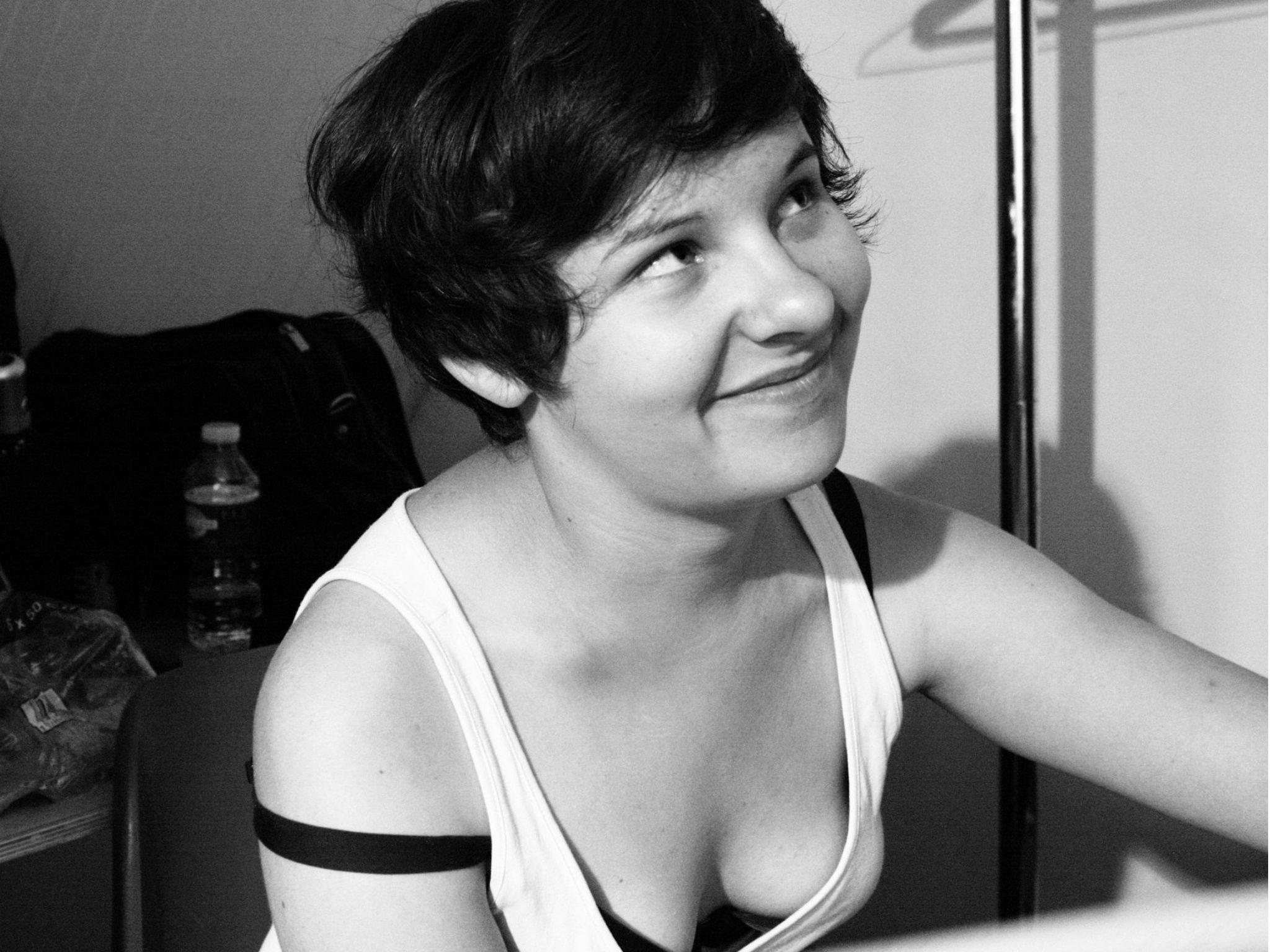
I came out as trans about four years ago, after moving to Berlin. As a third of the world’s opera is in Germany, I had had the plan to move there in the back of my mind for several years. Just after moving, I was depressed, dysphoric (uncomfortable in my body as a trans person), and couldn't sing a note without sobbing and ending up on the floor in a puddle.
I had been resisting coming out because I knew that I wanted to take testosterone, and had researched the effects of testosterone on the singing voice. There wasn't much information at the time, but the conclusion was basically this: don't take testosterone; you will never vocally recover enough to have a professional career.
At the time, I knew of no trans-masculine singers doing this. There were a few trans women who had come out publicly, but after contacting them I realised that the experience they had was nothing like mine, outside of being a transgender person in this world. With that perspective, the choice then became “Trans vs La Voce”. Up to this point it had been no contest: the voice is the most important thing to a singer. We are nothing without our voices; are voices are us.
This was the first lesson I had to learn: I am not my voice.
Realising that, since I was too depressed and dysphoric to sing anyway, and the way I was living wasn't viable, I decided to come out and start testosterone, notwithstanding the un-researched effects it would have on my voice. Many colleagues and teachers tried to dissuade me – or at the very least gave me their unsolicited opinions about my decision.
I'll leave that to your imagination, but I would be lying if I said it wasn't hurtful, or that it didn't affect me. For me though, there wasn't much of a choice.
Enjoy unlimited access to 100 million ad-free songs and podcasts with Amazon Music
Sign up now for a 4 month free trial (3 months for non-Prime members)
Enjoy unlimited access to 100 million ad-free songs and podcasts with Amazon Music
Sign up now for a 4 month free trial (3 months for non-Prime members)
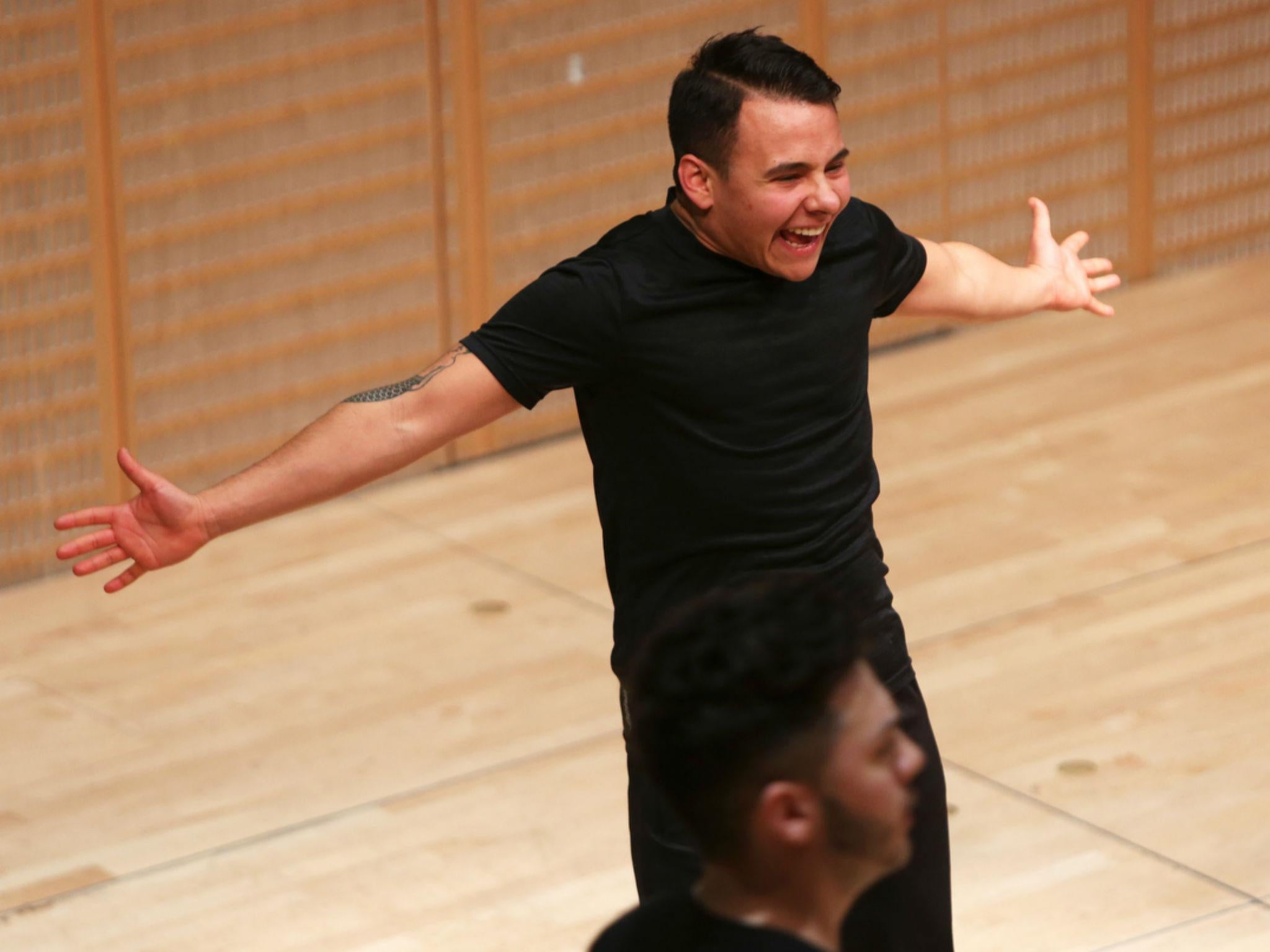
Here's what it felt like: I was hanging off a cliff, losing my grip on an icy ledge, seconds away from falling into a black void, and a rope started to dangle in front of me labelled “testosterone”. On top of the cliff were people looking me straight in the eye and saying: “Think of your career! If you take that rope, you'll be making a very bad choice.”
But there was no choice. It was life or death for me, and I knew I wouldn't have had a chance of a career if I hadn't started testosterone. My career now won't look like what these people imagined for me, but no one's career is how they imagine it to be.
I really made the decision after sending an email to my pedagogy teacher at university. I asked her what she thought might happen, and if she thought it was possible that I could still have a career after starting testosterone. I didn't realise I was looking for permission, but she gave it to me. “Well, it will be an adventure – and who knows, maybe you'll be a tenor?”
Let's fast forward now to a year after starting testosterone. My voice was weak. I was starting to be able to sing some basic, early arias again, but I was nowhere near the ability I had had as a mezzo. I headed to Bangkok for my top-surgery (a double mastectomy), and was in recovery for what felt like a lifetime. I have never been in so much pain in my life, and have never been so happy for it.
Through surgery, I found that I had more friends than I knew. More people who really supported me and loved me than I thought possible. I also learned how to ask for help.
The second lesson I learned: asking for help doesn't make you weak, it makes you smart.
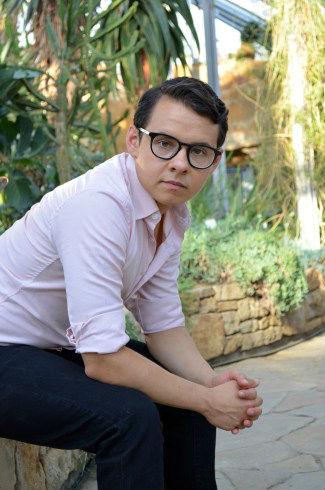
After battling post-op depression and slowly building up my repertoire again, I started to become something more or less like a tenor. I had previously been a lyric coloratura mezzo (which means I was a lower female voice type that could move quickly between high and low notes), but my tenor voice was turning out to be a different story.
I still had passable coloratura, but nothing near as fast. My voice wasn't light and flexible anymore, and high notes were excruciating at first because of how absolutely wretched it sounded. I was constantly breaking and cracking, and I had to start rebuilding my technique from the ground up, and it was difficult not only practically, but emotionally.
The University of Michigan had given me incredible vocal performance training. I got a wonderful education, not only on technique but on acting, diction, languages, repertoire, theory, etc. As a musician, I am still very skilled, but the voice itself has been slow to catch up after starting testosterone.
This disparity between my skills was and continues to be a point of pain and embarrassment for me. Although my voice has settled more and more with every month and year – and I know it's simply that the voice needs time to stretch and acclimate itself to my new body and new vocal folds – it's not always possible to explain that.
What testosterone does to the body is act like a steroid. It increases muscle, and changes the fat/muscle distribution. So although I still have an anatomically female larynx and bone structure, my vocal cords have thickened and lengthened, which makes them resonate at lower frequency, which in turn produces a deeper pitch. Even if it were possible to explain how complicated and miraculous this is to people, it's not necessarily graceful to constantly be making excuses for oneself, no matter how legitimate or interesting.
My voice is much stronger, but I haven't done my Bachelor's as a tenor. I still have many more years as a mezzo soprano under my belt than I do as a tenor, and my physiology is different from any tenor you will ever meet.
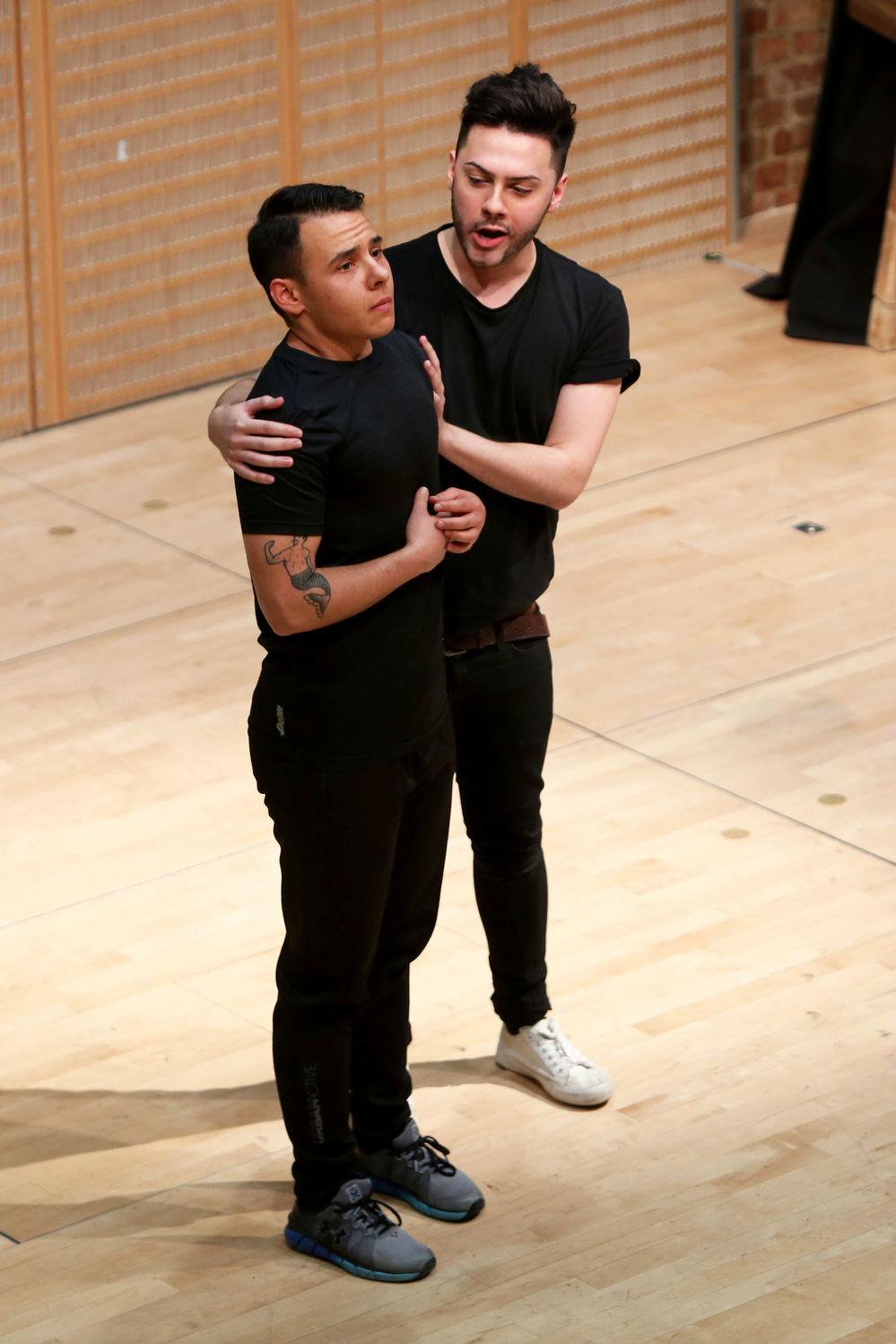
At this point of frustration, I applied to the Glyndebourne Academy. Glyndebourne offers a range of options to bring on and encourage young talent, from participation in youth operas to membership of the Glyndebourne chorus. A colleague had told me about this particular program, and I immediately felt that it was made specifically for me, whether they knew it yet or not.
The official student profile was this: “Glyndebourne Academy is for those young classical singers (16- 26) who have missed out on the chance to develop their vocal talent through lack of access to specialist knowledge, funds, or who have faced some other barrier which has prevented them reaching their full potential.”
Glyndebourne was creating a safe space for singers to accept their flaws or inadequacies, and to work on them without judgement, and to give them a real chance to make up for lost time due to finances, illness, disability – or in my case, the two years lost while taking testosterone.
From the very first audition, I felt supported and loved by the Glyndebourne Education team. During our auditions, they sat me down to ask me questions about my situation, and really listened to what I had to say. It gave me an incredible sense of validation that I didn’t know I had been looking for: you are a good artist, you are worth the time and effort, we want to listen to what you want to communicate.
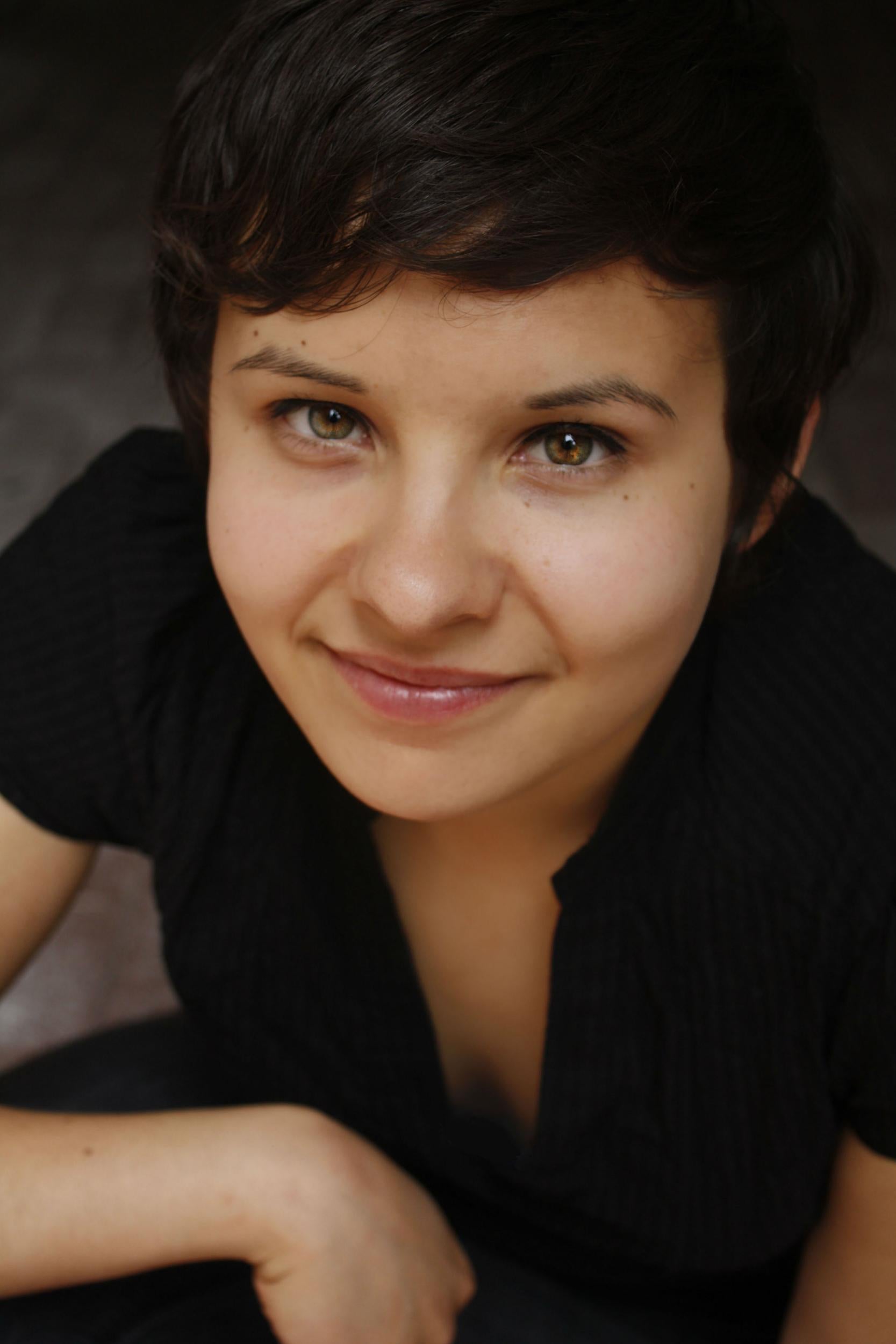
Their concern was genuine. One major piece of evidence of this was that, on the very first day, we had a presentation from a therapist who would be with us for the entire week, almost 24/7 (the course consists of a week-long residential course, followed up by a further weekend where performances take place).
He explained the ways that anxiety, depression, and other mental health problems might affect us, and how it can hinder our abilities to do our jobs. He gave us very simple tools to combat strong emotions like embarrassment, shame, and more. By answering every one of our questions calmly and without judgement, the Glyndebourne Academy’s on-hand therapist created the ideal environment for us to learn efficiently and to enhance the amount of information we could process.
But my main priority in going to Glyndebourne was to sort out my vocal technique. The celebrated voice coach Mary King, who seems to be the closest thing to a fairy godmother that I know, was our teacher at the program. Without judgement or preconceptions about my voice, she helped me to overcome some of hurdles that previously seemed impossible.
Most of the time we worked on mixing head and chest voice, which after having seen several other voice teachers I had thought was impossible with my new voice. In a matter of minutes, it was sorted. And one moment, while we were studying the character of Monostatos (from The Magic Flute), she very simply made me realise that, both in singing and in life, I'm using too much of my energy. I need to be efficient and smart.
After leaving the Academy, I felt a renewed sense of ambition, and a sense of hope in my career that I hadn't felt in a very long time. Although I'm still working to master my art, I now have the confidence to know that I'm on the right path, and that I have mentors to support that.
Since leaving the Academy, I already have done several auditions, one of which has been successful, and I hope to keep building my artistry to be an utterly engaging and necessary character tenor.
Glyndebourne Education has a number of courses available for developing talent. Please go to glyndebourne.com/education
Video by Tom Goulding.

Join our commenting forum
Join thought-provoking conversations, follow other Independent readers and see their replies
Comments